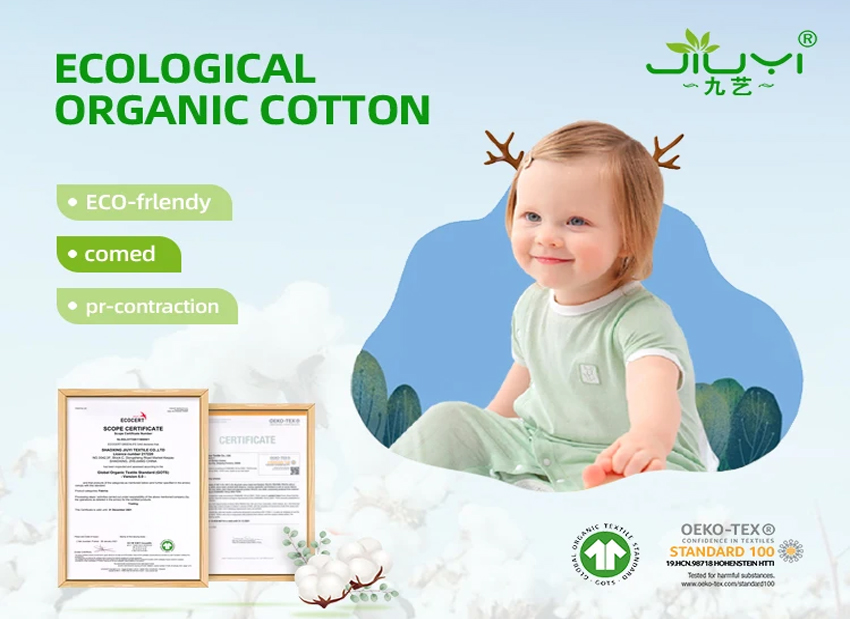Views: 12 Author: Site Editor Publish Time: 2024-01-06 Origin: Site










Organic cotton is cultivated without the use of synthetic pesticides, herbicides, and fertilizers. This minimizes the environmental impact of agriculture, preventing the release of harmful chemicals into the soil and water.
Organic farming practices, such as crop rotation and maintaining natural habitats, contribute to biodiversity preservation. This helps create a more balanced and resilient ecosystem.
Organic cotton is grown from non-genetically modified (GMO) seeds, promoting seed diversity and avoiding potential environmental risks associated with genetically engineered crops.

Consumers, especially infants and young children, can benefit from organic cotton's lack of exposure to harmful chemicals commonly used in conventional cotton farming. This is particularly important for those with sensitive skin or allergies.
Organic cotton is naturally hypoallergenic, making it a suitable choice for individuals with skin sensitivities or conditions such as eczema.
Some organic cotton producers and brands prioritize fair labor practices. Supporting organic cotton may contribute to better working conditions and fair wages for farmers and laborers.
Many brands that focus on organic cotton also emphasize transparency in their supply chains. This commitment includes clear communication about the sourcing, processing, and manufacturing of their products.
Organic cotton farming practices often prioritize soil health through methods like crop rotation, composting, and reduced soil disturbance. Healthy soil is more fertile and sustains long-term agricultural.






